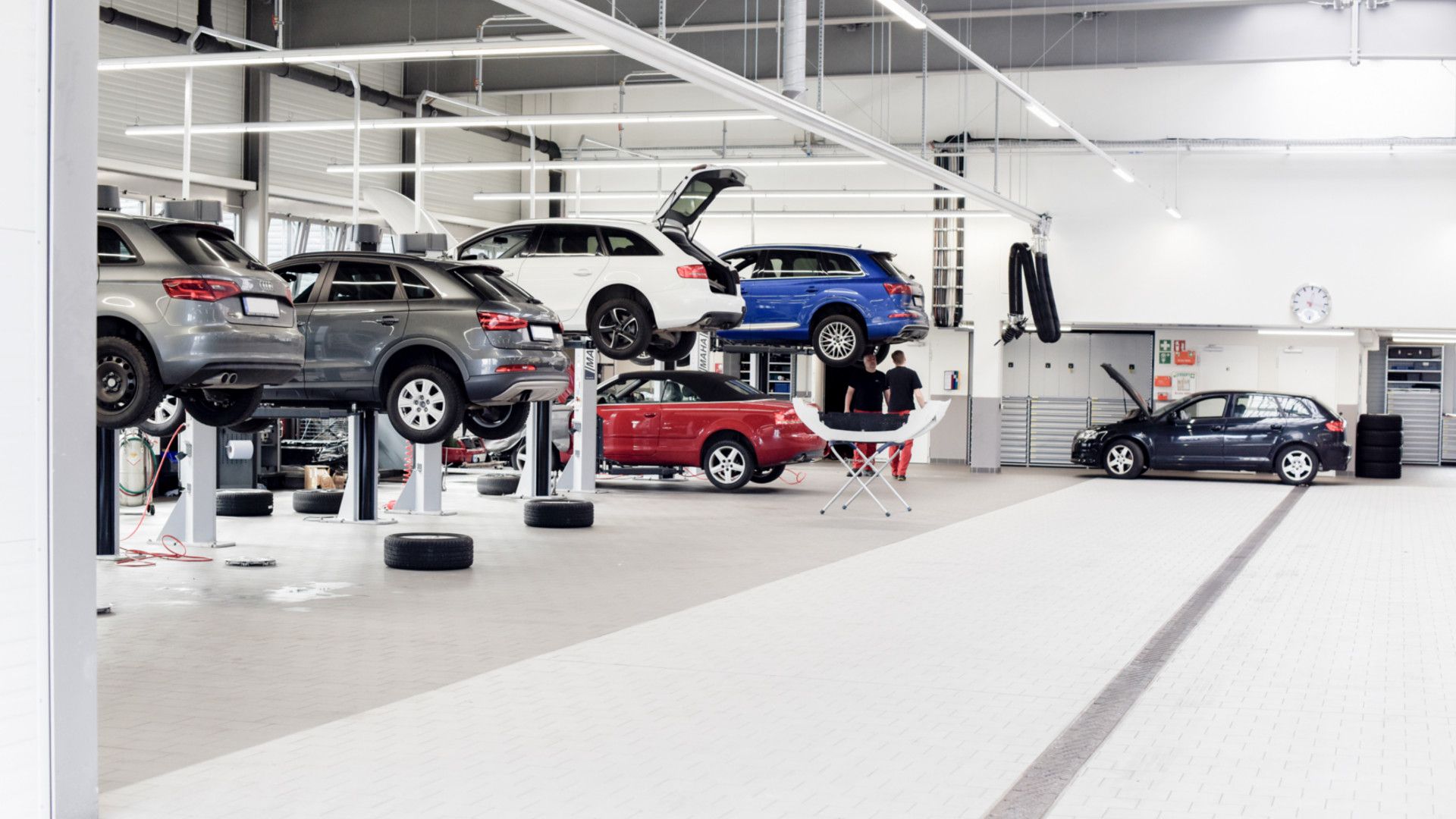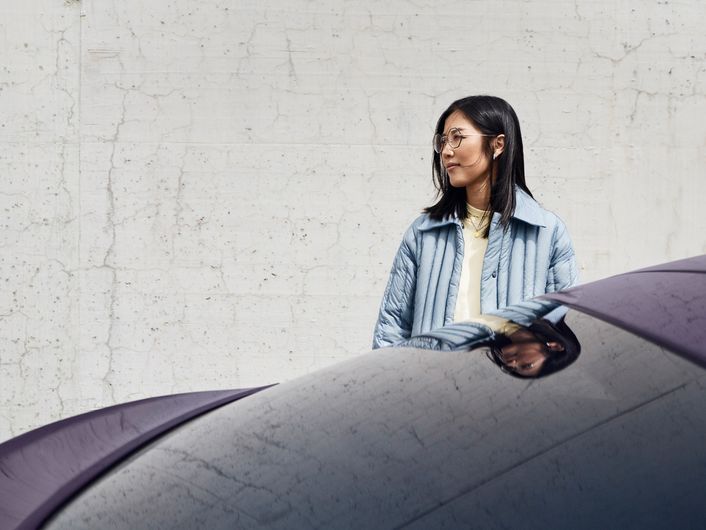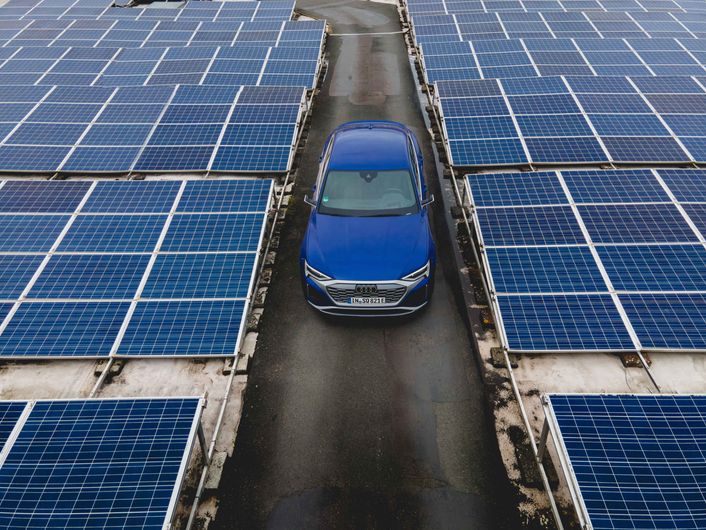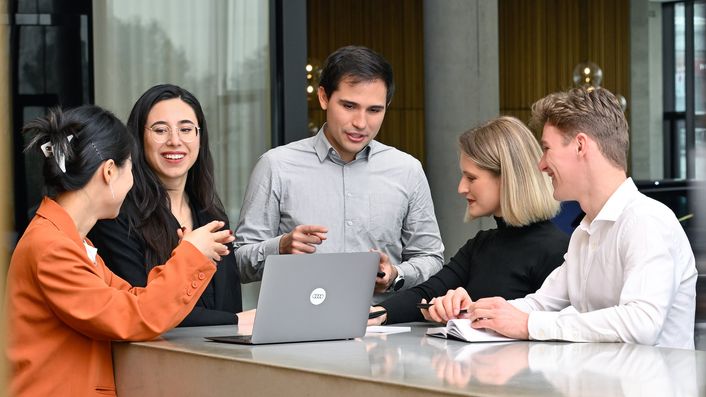Hof
Sustainability in dealerships

The Audi Zentrum Hof: focused on the future
Reinhold Lehnert, operations manager of Audi Zentrum Hof, and Roman Fehling, commercial manager of Motor-Nützel GmbH, talk about the importance their company places on sustainability and take us on a tour to show us the sustainable concept behind the Audi Zentrum Hof.
Mr. Fehling, in your view is sustainability just hype that lots of people are now jumping on?
Fehling: To some extent, yes. The press feeds the hype surrounding sustainability – often in a negative way, unfortunately. In any case it is clear that we need to think about adopting a different approach. Here in the dealership we are also looking at issues such as electric mobility and the switch to electric filling stations.
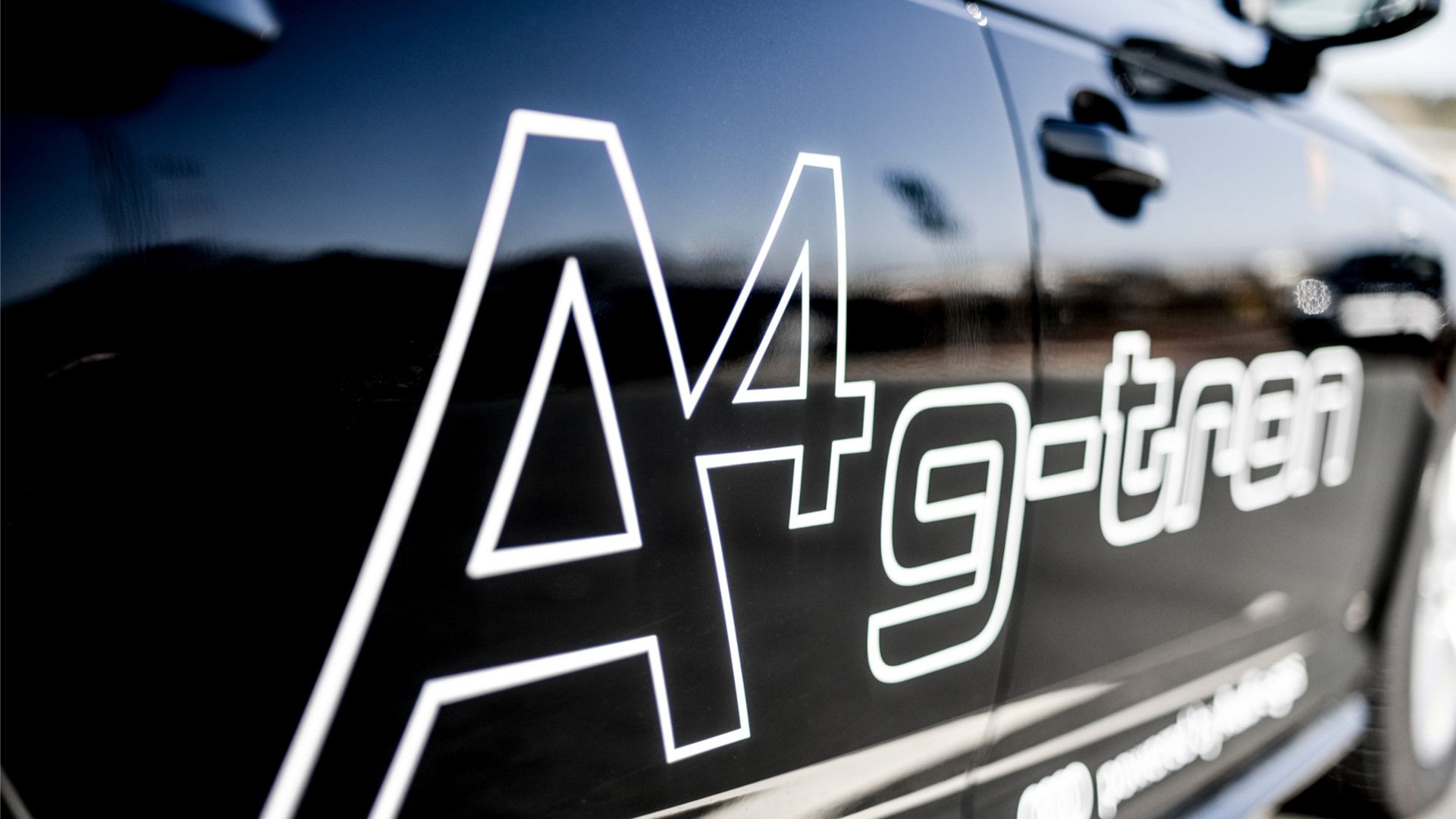
Sustainability is a core topic in the Audi Strategy 2025, alongside digitalization and urbanization. Mr. Lehnert, Mr. Fehling, how is the issue of sustainability integrated into your corporate strategy?
Lehnert: Integration within the company begins with the company structure. To prevent the demise of the family-run business due to a lack of offspring, we founded the Hans und Emma Nützel Altenstiftung in 1981. The foundation’s philosophy is based on long-term decision-making geared to sustainability. This essentially involves a regional and local outlook. The maintenance of the capital equipment and the investment in long-term plant and equipment form part of our strategy.
Fehling: Companies often focus solely on cash and return on investment, rather than on investment in real estate. We own our real estate. We buy long term and the returns are generated over the long term. I see that as a clear indication of our philosophy.
Lehnert: The word 'sustainability' is often bandied around for no real reason and is little more than a trendy term. In fact, sustainability is based on three pillars: economy, ecology and social issues. We have integrated all three pillars into our strategy.
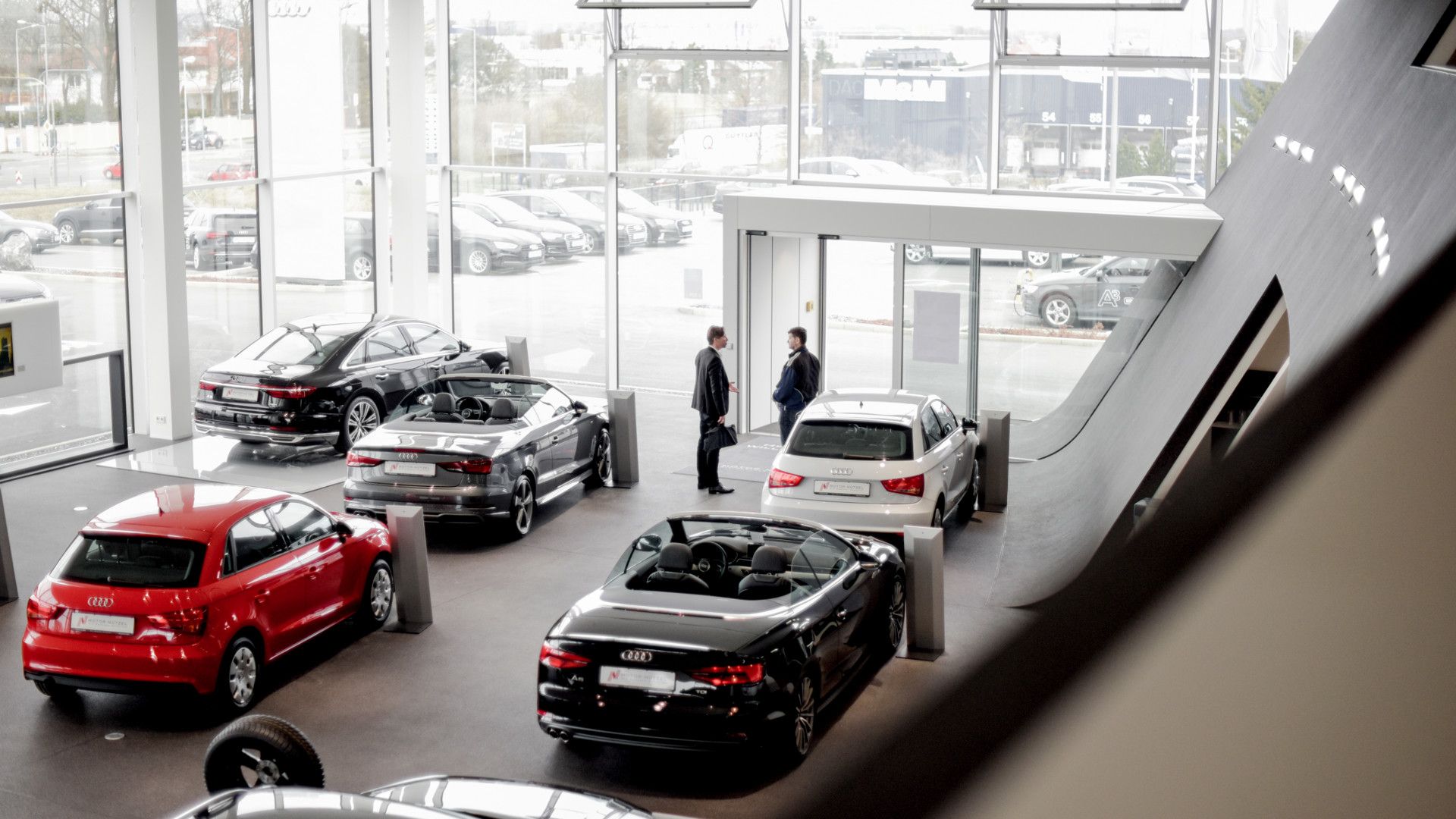
Can you quote examples of the three pillars from your company?
Lehnert: We take decisions that have long-term positive repercussions for our company’s economic success. At the Hof site we took over a Volkswagen and an Audi sales and service outlet that were insolvent. Both outlets were no longer CI-compliant. Despite the much higher investment costs, the merger and new construction of the outlets on the current company site proved the most economical solution in terms of the site’s long-term usage. Despite our strong growth, our corporate policy remains regional and, as such, has a solid long-term focus.
This site, built to the KfW 55 standard, is just one example of our environmental measures. The KfW standards provide a range of energy efficiency indicators for buildings. We use the waste heat generated by a farmer to cover the basic heating requirements in all our buildings. Added to this is the biological processing of 80% of our water requirements for the car wash facilities.
We live up to our company’s social commitment by promoting social and cultural projects and events in the region. For the past 15 years we have been the main sponsor of the Bayreuth Easter Festival. The idea behind the festival is to bring together culture and understanding between nations. Young musicians from 37 countries were invited to Bayreuth this year. Crisis-hit regions are also included. All money raised will go to sick children.
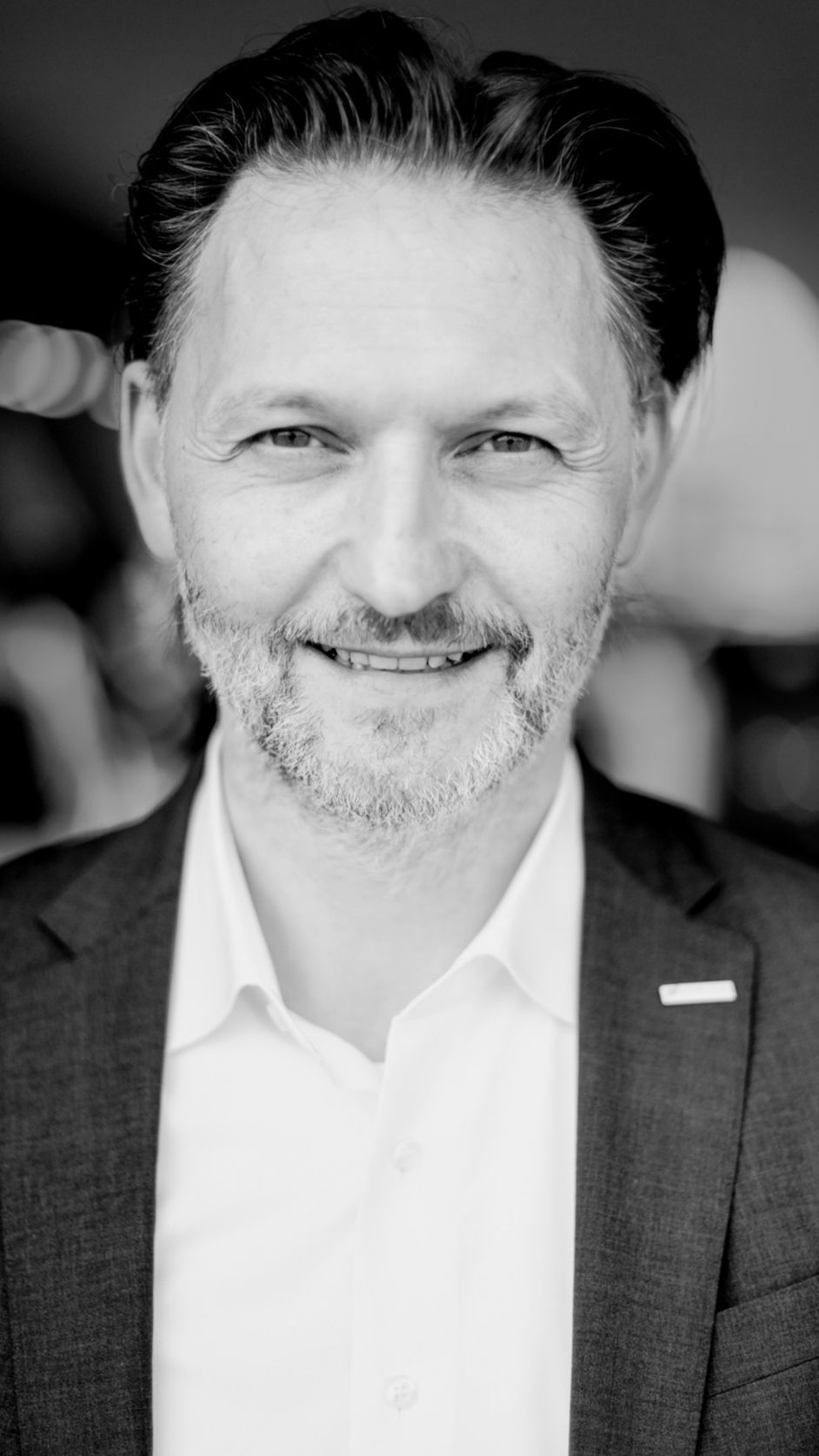
Roman Fehling
“We need a different approach. Here in the dealership we are also looking at issues such as electric mobility and the switch to electric filling stations.”
Roman Fehling was born in Mistelgau in 1968. He studied building engineering at Nuremberg Tech and garnered professional experience at several leading construction companies, among other things, as managing director. In 2014, he joined Motor-Nützel GmbH in Bayreuth.
Your strategy states: “Commercial success is the basis for sustainable performance.” What do you mean by that?
Lehnert: Our corporate strategy rests on a solid base. It also gets us through economically challenging times. We survived these downturns without having to cut staff or close locations. We don’t need to respond to each short-term development, but can act proactively. Our customers also see this stability in a positive light. We are proud of being a reliable partner for our customers and suppliers.
Fehling: The reason for this stability is that we focus on the results and are not driven by volumes or revenue
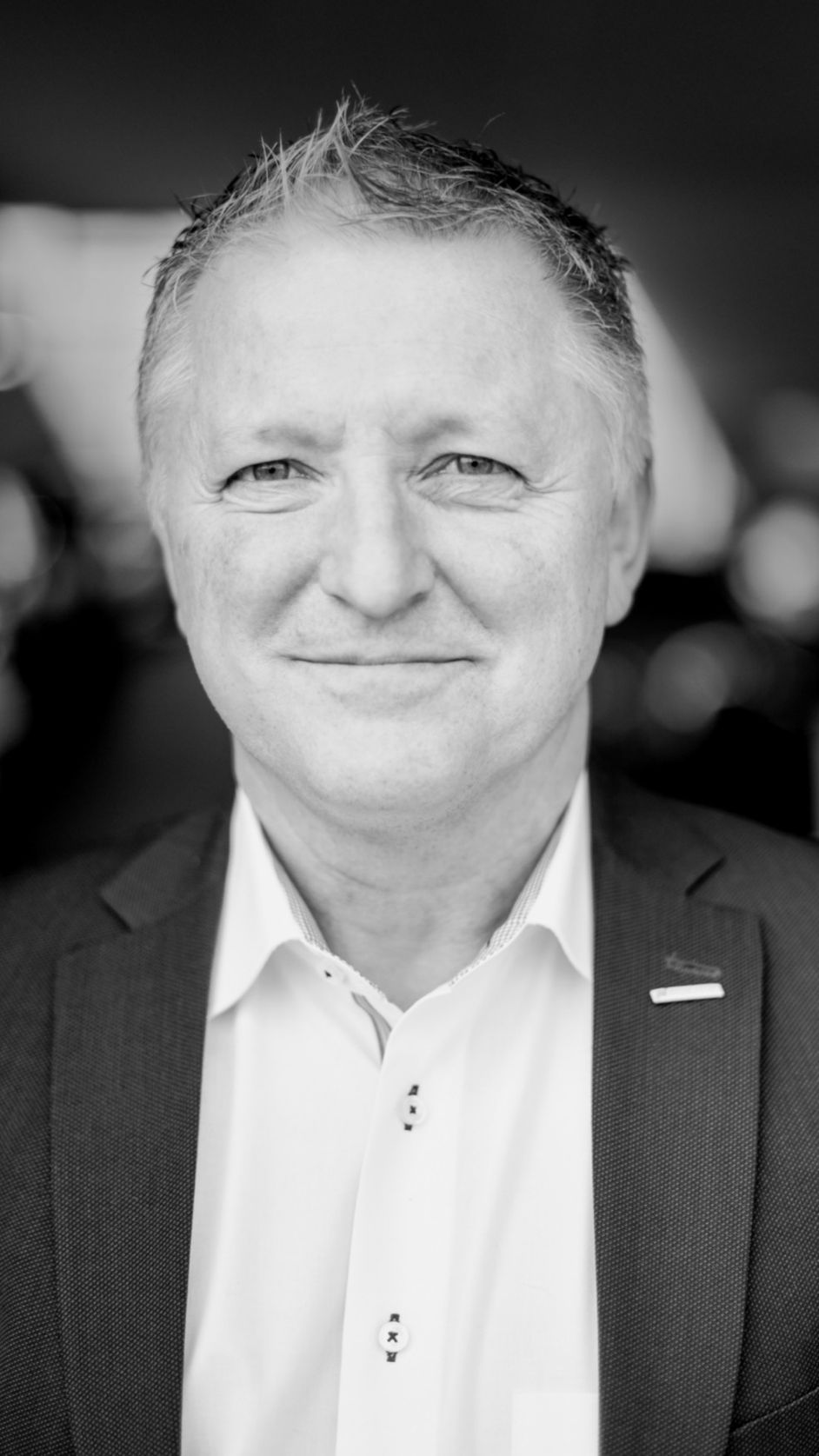
Reinhold Lehnert
“We live from and in the region. Thanks to district heating from a regional farmer, we get the energy we need and we demonstrate our commitment to the region by promoting social and cultural projects.”
Reinhold Lehnert was born in Kemnath in 1962. After 11 years as an officer in the German Army, where he also attended classes part-time to gain a business administration degree (business economist), he switched to the car dealership segment in 1992, joining the company Motor-Nützel GmbH as a management assistant. In his 26 years at Motor-Nützel, Mr. Lehnert has garnered experience in various assistant and management functions. In 1998 he also became brand manager for the Audi brand.
“Our training quota is around 20% annually. Thanks to our growth, we managed to take on between 70% and 80% of trainees on average over the past few years.”
Sustainability is an important issue for Audi across the entire value chain. This notion of sustainability starts right from awarding contracts to our suppliers. We make certain demands with regard to issues such as environmental protection, employee rights and human rights. Do you also take compliance with certain standards into account with your suppliers?
Fehling: Yes, we work together with regional companies. When building the dealership, 80 – 90% of our suppliers were from the region. That ensured short transport paths. With such a large project, that has an extremely positive effect.
Lehnert: We also try to influence subcontractors with regard to compliance with social standards vis-à-vis their employees. Since our partners are almost exclusively from the region and we foster long-term collaboration, we are familiar with their company philosophies.
Our strategy is also designed to be sustainable when it comes to employees. Our training quota is around 20% annually. Thanks to our growth, we managed to take on between 70% and 80% of trainees on average over the past few years. We believe this is an excellent figure.
Speaking of employees: Generation Y will be able to choose their employer. What makes your Audi Zentrum a particularly compelling place to work?
Lehnert: Our good reputation, gained through our success and our growth, makes us very popular as an employer. Nonetheless we have a sense that things are changing. Particularly in areas like bodywork and paintwork, it is becoming increasingly difficult to find specialists.
Fehling: I’m convinced that an open, friendly working atmosphere is also decisive when it comes to choosing an employer. Here too, we can score points off our rivals. The continuous windows mean there is daylight throughout the garage. We have light-colored floors everywhere, some with a wood look. Large areas of glass make the offices open and bright.
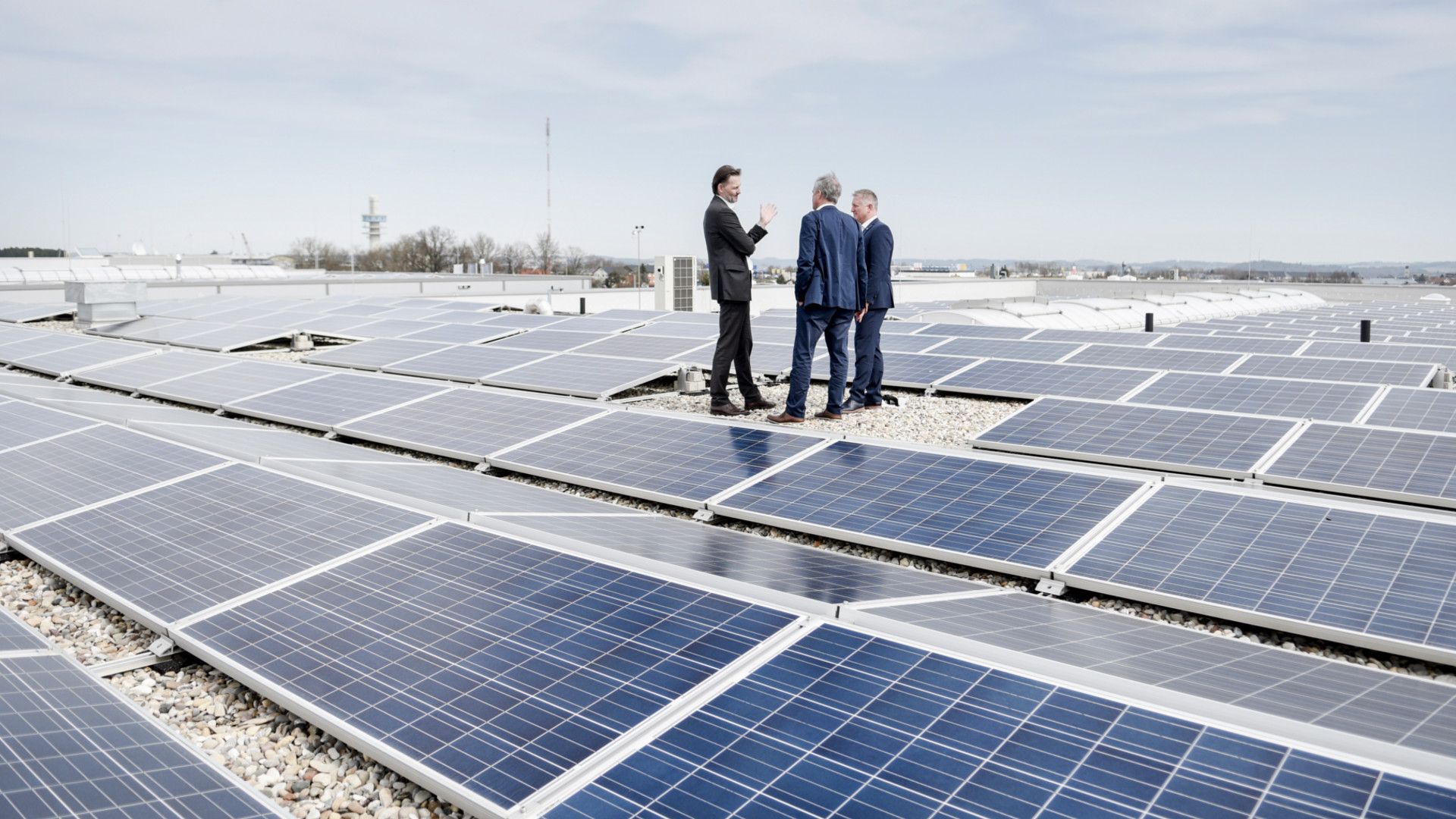
We have taken a close look around the Audi Zentrum Hof and gotten to know its sustainable design. Come along with us for a tour.
